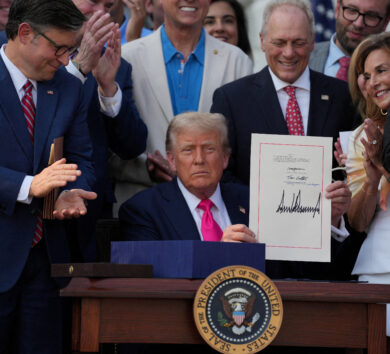
(But so far so good) – EPOC chairman

Over the last year, events abroad have led to an increase in inflation in Jamaica.
Higher inflation is particularly deleterious to the less fortunate in Jamaica and so in an effort to protect them, the Bank of Jamaica and the Government have exercised mechanisms to reduce inflation for the greater good of the country.
Speaking at an Economic Programme Oversight Committee (EPOC) press briefing in Kingston yesterday (March 24), EPOC Chair, Keith Duncan noted that inflation continues to trend downwards, ending February 2023 at 7.8 per cent relative to 8.1 per cent at January 2023.
Other highlights for the year to date are tax revenues outperformed the Third Supplemental Budget.
For the review period, tax revenue of J$583.1 billion was $4.4 billion (0.8 per cent) ahead of budget and $115.0 billion (24.6 per cent) above receipts collected for April 2021-January 2022. This positive performance relative to budget was mainly attributable to higher than programmed outturns from greater economic activity than budgeted.
Wages and salaries to GDP continue to breach the nine per cent fiscal rule and is projected to close the year at 11.4 per cent.
Wages and salaries of $229.5 billion was $0.3 billion (0.1 per cent) below budget but was 2.4 per cent greater than the $184.2 billion for the same period in the 2021/22 fiscal year. This number reflects increases and retroactive payments for the first phase of the public sector compensation reform group that finalised agreements up to December 22.
There is now a $45 billion increase in payments to public sector workers.
EPOC recommends a review of the GOJ wages to GDP nine per cent fiscal rule as it continues to be breached.
Net international reserves (NIR) of US$3.9 Billion as at February 2023 remain strong.

Real GDP growth of 3.4 per cent was estimated for the October-December 2022 quarter, an indication that real GDP has returned to pre-COVID levels and is projected to close the fiscal year, which ends at March 31, 2023, at 5.1 per cent.
The Government of Jamaica projects a 1.6 per cent GDP growth rate for 2023/24.
Debt-to-GDP is projected to close the fiscal year at below 80 per cent as primary and fiscal balances exceed targets.
On the debt issue, Duncan said: “Here we continue to move in the right direction so we continue to see debt reduction to be a feature of our fiscal policy and that is what creates a level of sustainability for us as a country and frees up resources and creates fiscal space for us”
Debt-to-GDP is projected to fall to 74.2 per cent in 2023/24.
Duncan continued: “ It is critical that we continue our trajectory of debt reduction because if we do, then we free up liquidity and resources for investment which is growth enhancing. Reducing Jamaica’s debt-to-GDP ratio allows us to (1); to pay adequate compensation to public sector workers and (2); make capital expenditures and investments in services to our tax-paying public. So it is critical that we free up private credit and don’t crowd out the private sector so that there can be greater growth led by this sector.”

EPOC concluded: “ Based on the trend of reducing inflation and the continued reduction in international commodity prices, there is an increasing possibility that inflation could fall into the target range of 4.0 per cent to 6.0 per cent ahead of the BOJ’s December 2023 projected timeframe. This may give the Central Bank some comfort to contemplate an earlier-than-anticipated loosening of monetary policy, which would bolster Jamaica’s economic growth trajectory.
“Jamaica’s financial system remains stable and strong despite the hikes in interest rates and tight monetary policy. Private credit continues to increase from the COVID-19 lows which is a positive leading indicator for continued growth. EPOC is therefore cautiously optimistic despite global headwinds that growth will continue to hit GOJ’s medium-term growth targets.
“We have a great degree of confidence that macro-economic stability will be maintained and that the GOJ will continue to reduce debt levels in line with Jamaica’s fiscal rules. This should ensure that the increasing fiscal space created will allow the build-up of buffers and increasing investments in infrastructure, increased compensation for the Public Sector, along with improved delivery of services to our tax-paying Jamaican citizens.”







Comments